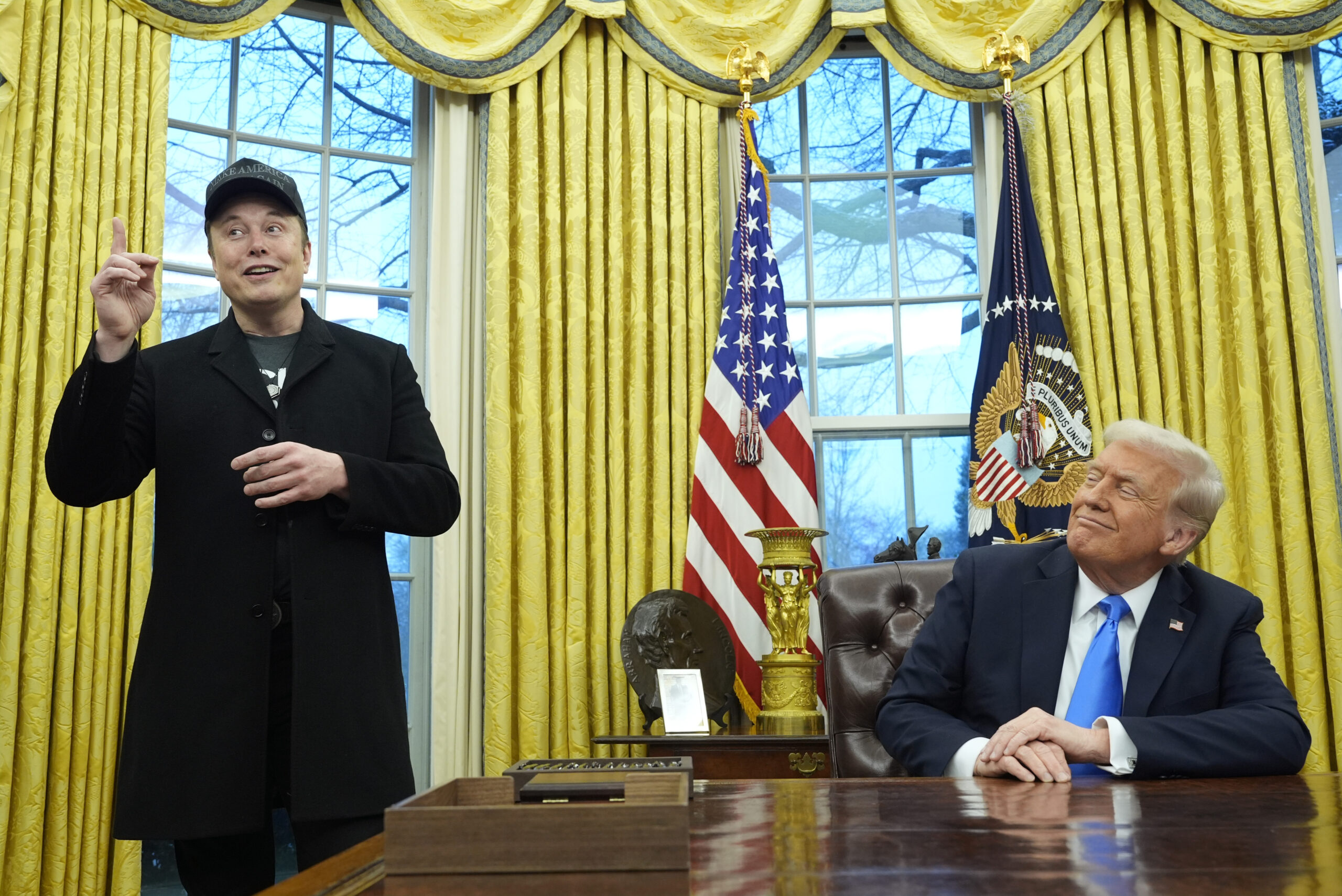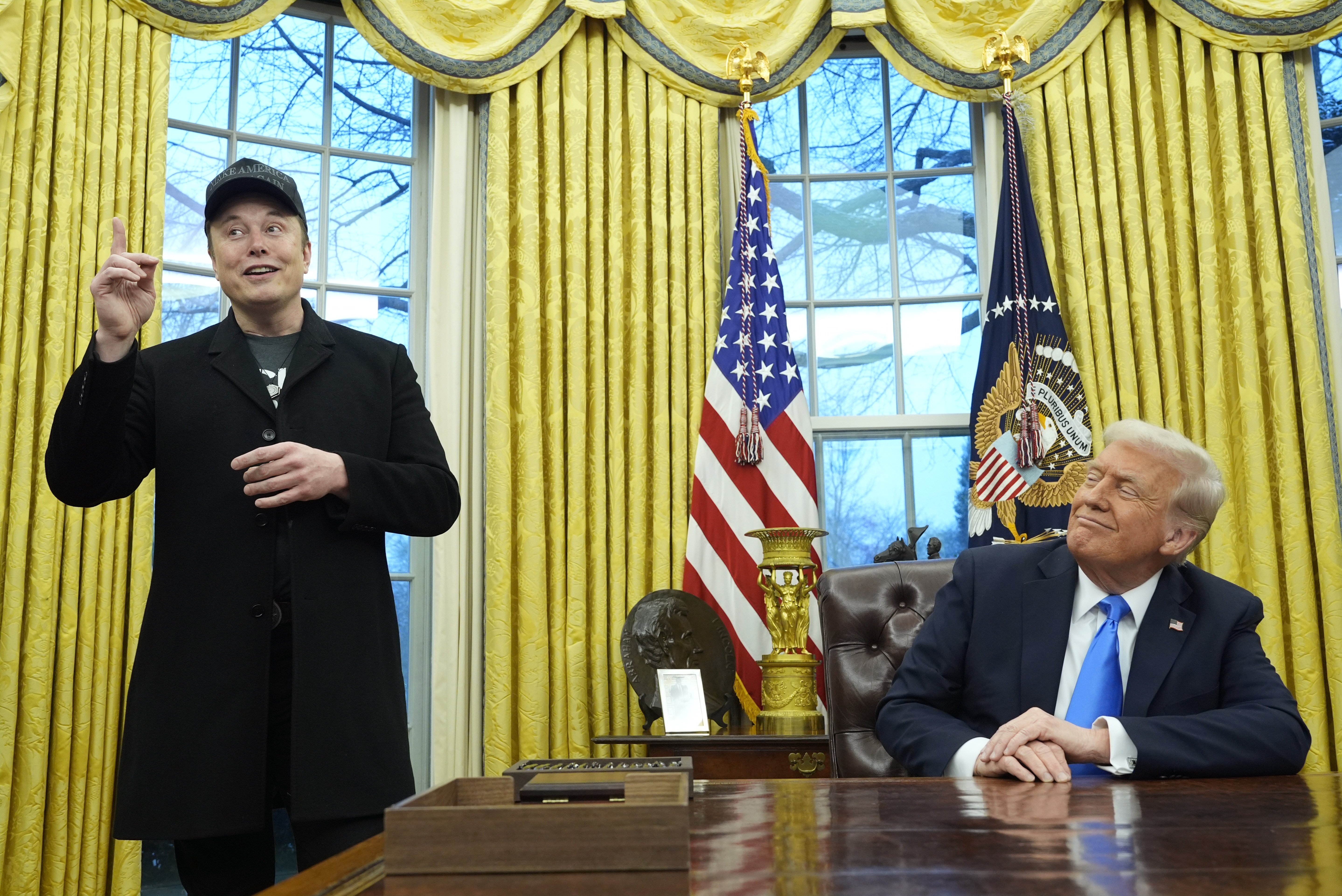Congress
Senate confirms Kash Patel to lead FBI
The Senate has confirmed Kash Patel as director of the FBI, launching a new chapter for the nation’s top domestic investigative agency.
Lawmakers voted to confirm Patel 51-49, with Republican Sens. Susan Collins and Lisa Murkowski joining with all Democrats in opposition.
A longtime Trump loyalist who has in the past expressed his desire to help root out the “deep state,” Patel has raised questions among critics about whether he’s prepared to insulate the department from undue influence from the White House. President Donald Trump has made clear he is prepared to go after his adversaries in his second administration, and Patel is poised to be a key figure in those efforts.
Senate Judiciary Committee Democrats took their ultimately futile fight against Patel to FBI headquarters on Thursday morning to denounce his nomination.
“Kash Patel — mark my words — will cause evil in this building behind us, and Republicans who vote for him will rue that day,” said Sen. Sheldon Whitehouse (D-R.I.) at the press conference.
Collins said in a statement that “Mr. Patel has made numerous politically charged statements in his book and elsewhere discrediting the work of the FBI, the very institution he has been nominated to lead,” which she said has “cast doubt on Mr. Patel’s ability to advance the FBI’s law enforcement mission in a way that is free from the appearance of political motivation.”
But other Republicans defended Patel vigorously.
“If you want to defend our constitutional rights, confirm Kash Patel,” Senate Majority Whip John Barrasso of Wyoming said in a floor speech Thursday morning. “If you want justice and accountability, confirm Kash Patel. If you want to keep our communities safe, confirm Kash Patel.”
Barrasso added, “Mr. Patel is a man of integrity and fidelity to the rule of law.”
Trump tapped Patel to replace Christopher Wray, who the president nominated for a 10-year term during his first administration but effectively ousted in naming Patel as the successor before that term was completed.
Republicans argued that Wray allowed the politicization of his agency in the opposite direction, blaming him for the sweep of Trump’s Mar-a-Lago home as part of the investigation into his retention of classified documents.
A former Department of Defense and National Security Council staffer during Trump’s original stint in the White House, Patel has proven himself as an unwavering ally to the president. As a House aide, he worked to discredit the investigation into Russian interference in the 2016 election.
Patel has indicated he intends to massively overhaul the agency, including by “coming after the people in the media who lied about American citizens, who helped Joe Biden rig presidential elections.” In his book, “Government Gangsters,” he also outlined members of the “Executive Branch Deep State” — what Democrats have dubbed an “enemies list.”
Congress
House, Senate GOP to begin undoing Biden regulations
Republican lawmakers in both chambers are set to begin voting soon on legislation to undo a range of Biden-era rules, teeing up their first major steps toward rolling back the previous administration’s regulatory agenda.
The Senate is gearing up to begin considering Congressional Review Act resolutions in the coming weeks that would undo rules on bank mergers, methane emissions and other matters, according to a Senate GOP aide with knowledge of the matter who was granted anonymity to discuss unannounced plans. The chamber could begin voting on the roll-backs as soon as next week, though the exact timeline remains unclear.
Meanwhile, the House is set to vote next week on two of those resolutions, which would undo Biden-era climate rules.
The Senate’s top targets include a pair of resolutions introduced by Sen. John Kennedy (R-La.) that would overturn a rule from the Treasury Department’s Office of the Comptroller of the Currency that put new restrictions on bank mergers and a regulation from the Interior Department’s Bureau of Ocean Energy Management requiring oil and gas companies to submit archaeological reports to the agency before beginning offshore drilling, respectively.
The chamber is also expected to take up a resolution from Sen. John Hoeven (R-N.D.) that would undo an EPA rule adding a charge on some methane emissions from oil and natural gas facilities and legislation from Sen. Ted Cruz (R-Texas) to roll back an Energy Department regulation that requires increased efficiency levels for gas-fired water heaters.
Semafor first reported that the Senate is expected to take up the roll-backs.
The House is expected to vote Wednesday on rolling back the methane emissions regulation and it will take up the water heater resolution on Thursday, according to two people with knowledge of the matter who were granted anonymity to discuss the unannounced schedule.
Congress
‘Time is running out’: Lawmakers scramble for a deal to stop a shutdown

A Capitol Hill clash over President Donald Trump’s extraordinary moves to take control of federal spending is upping the chances that lawmakers won’t have a deal to fund the government before a shutdown deadline in just three weeks.
Talks between the top appropriators in the House and Senate have soured in the past week, with lawmakers still searching for an agreement on topline spending levels that are a prerequisite for funding individual agencies and programs for the remainder of the fiscal year.
Negotiators have insisted they are staying at the table to hash out an accord. But there’s no clear strategy to break the logjam, and House Republican leaders privately acknowledge that contingency plans need to be drawn up in case the impasse continues ahead of the March 14 deadline.
“Time is running out,” Senate Appropriations Chair Susan Collins of Maine told reporters.
The stalemate has been driven in part by partisan distrust over the Trump administration’s remarkable seizure of the federal purse strings. Democrats want assurances from Republicans that the administration will adhere to Congress’s wishes on spending as Trump and billionaire ally Elon Musk summarily cut jobs and programs.
“The one thing Rosa DeLauro and I are asking for is simply an assurance that if there’s going to be Democratic votes, that the president and Elon Musk will follow the law, and they won’t just take our bill that we’ve worked really hard on and rip it up and it doesn’t matter,” Sen. Patty Murray of Washington, the top Democrat on the Senate Appropriations Committee, told reporters Thursday, referring to her counterpart on the House Appropriations Committee.
Though more GOP lawmakers are starting to speak out against the executive branch’s unilateral freezing of federal funds, Republican leaders are not likely to agree to checks on Trump’s ability to slash spending.
That has made a continuing resolution, which funds the government under the prior year’s spending levels, look more appealing to members of both parties — though even this alternative poses a risk of a shutdown.
A core group of House Republicans have repeatedly threatened to revolt if their leaders move forward with anything other than 12 individually negotiated spending measures. They want those bills to include certain conservative policy riders and spending cuts.
Democrats, meanwhile, are signaling they won’t bail Republicans out: DeLauro has said that if a long-term continuing resolution were to come to the floor — one that lasts beyond just a few days to let lawmakers put the finishing touches on a full-year bill — it would be “the job of the majority” to pass it.
Murray in a floor speech Thursday called a full-year continuing resolution a “nonstarter” that would end up creating “slush funds for this administration to adjust spending priorities and potentially eliminate longstanding programs as they see fit.”
A stopgap spending bill would also force Congress to lurch weeks or months at a time on status quo spending, bringing uncertainty to agencies that are already besieged by Trump and Musk’s unpredictable personnel cuts. Short-term, flat funding can halt military equipment upgrades, hinder strategic planning and prompt hiring and procurement freezes.

A sign negotiations were beginning to nosedive came Thursday afternoon, when Collins and Murray volunteered within an hour of each other very different readings on the state of the discussions.
Murray insisted negotiators are “extremely close” to landing the topline numbers and that she was in “constant communication” with her Republican colleagues, but didn’t explain how she squared her confidence with the fact that she and DeLauro are pushing for commitments to rein in Musk and Trump that Republicans are unlikely to accept.
Meanwhile, Collins said talks “appear to be at an impasse” after she and House Appropriations Chair Tom Cole of Oklahoma made a joint offer to Democrats on Sunday that had gone without a substantive reply “other than just a perfunctory acknowledgement.”
“I am very in disappointed,” Collins said in a brief interview.
The House has been in recess this past week, but members’ return on Monday could bring more clarity to the state of the talks. In interviews at the Capitol over the past few days, senators have expressed hopes of landing a deal so their efforts to negotiate individual funding bills don’t go to waste.
It typically takes at least a month for lawmakers to close out negotiations on the dozen appropriations bills once an overarching agreement on topline spending levels is locked in, but some Senate Appropriations subcommittee chairs say they will be ready to go when — or if — those numbers are delivered.
“We’ve been ready to go for a long time — we get a top line number, we’ll be done like that,” Sen. John Hoeven, chair of the Senate Appropriations Agriculture subcommittee, said in a brief interview, clapping his hands to emphasize the speed at which his panel is prepared to act.
“We’re looking forward to it,” said Sen. Katie Britt (R-Ala.), chair of the Homeland Security subcommittee, of a toplines deal. “We want to get to work.”
Sen. Jeanne Shaheen of New Hampshire, who leads Democrats on the Agriculture subcommittee, offered a more sobering assessment: “It will be challenging to get something done by the 14th.”
Congress
Molly Jong-Fast is thinking about challenging Jerry Nadler
NEW YORK — Novelist turned political journalist Molly Jong-Fast wants somebody “serious” to run against Rep. Jerry Nadler in 2026 — so she doesn’t have to do it herself.
The Vanity Fair correspondent and podcast host has been talking to political consultants about a run against the 77-year-old Manhattan Democrat. But Jong-Fast told Blue Light News she’s “still really on the fence.”
“If someone who is a good communicator and a serious Democrat will run for that seat,” Jong-Fast said in a phone call Friday, “then I absolutely will not. If there’s someone who’s an AOC or a Maxwell Frost — if there’s someone like that who will run — then I will just be delighted.”
Nadler’s profile could hardly be more different than Rep. Alexandria Ocasio-Cortez or Frost, the 28-year-old Florida Democrat. The dean of New York’s congressional delegation, Nadler has held the office for 32 years, since 1992. But in December he was pushed out of his role as the top Democrat on the powerful Judiciary Committee by Rep. Jamie Raskin of Maryland, who another member told Punchbowl has “reenergized” the committee.
“It’s not about their age, it’s about their ability,” Jong-Fast said. “And clearly the fact that Jerry has been removed from his committee means that leadership does not have faith in him. If leadership does not have faith in him, then the voters should not have faith in him.”
Nadler has already filed to run for reelection. In fact, he told New York magazine last year he could run for another five terms. His chief of staff, Robert Gottheim, noted that Nadler easily beat veteran Rep. Carolyn Maloney in a competitive primary in 2022 and didn’t even face a primary in 2024 before getting reelected in November with 80 percent of the vote.
“He’ll put his over 30-year record of accomplishments against anyone,” Gottheim said. “The district seems pretty happy with his representation and work in Congress. He takes every election at a time and he intends to run for reelection.”
Time will tell if the first midterm election of President Donald Trump’s second term results in the same fed-up-with-the-old-guard energy that helped Ocasio-Cortez topple longtime Rep. Joe Crowley in 2018 — and if so, whether a 46-year-old Upper East Sider who’s about to release a book about being the daughter of feminist author Erica Jong, is the one to seize it.
Jong-Fast understands that and put the odds of a campaign at 80 percent not running, 20 percent running — down from 50-50 at the start of the interview.
Nadler may already have a well-known challenger in Trump’s former lawyer Michael Cohen, who has become an unlikely “resistance” hero for testifying against the president. Cohen decided against taking on Nadler last cycle, but then told New York mag he’d announce a 2026 run the day after Election Day. That day has come and gone with no announcement, but Cohen told Blue Light News Friday he is still planning to run.
There are also a handful of Manhattan elected officials who would be eager to jump in the minute Nadler gets out of the race. Among the names in the mix are Assemblymembers Micah Lasher, Alex Bores and Rebecca Seawright, City Council Members Erik Bottcher and Julie Menin and state Sen. Brad Hoylman-Sigal.
“Jerry has godlike status in the district,” Lasher said.
-

 The Josh Fourrier Show3 months ago
The Josh Fourrier Show3 months agoDOOMSDAY: Trump won, now what?
-
Economy3 months ago
Fed moves to protect weakening job market with bold rate cut
-
Economy3 months ago
It’s still the economy: What TV ads tell us about each campaign’s closing message
-

 Politics3 months ago
Politics3 months agoHow Republicans could foil Harris’ Supreme Court plans if she’s elected
-
Uncategorized3 months ago
Senate Dems balk at Johnson’s spending bill, but wait to release their own plan
-
Politics2 months ago
Trump’s pick to lead USDA hasn’t returned Vilsack’s call
-
Economy3 months ago
Harris dismisses Trump as ‘not serious’ on the economy in BLN interview
-

 Politics3 months ago
Politics3 months agoRFK Jr.’s bid to take himself off swing state ballots may scramble mail-in voting








